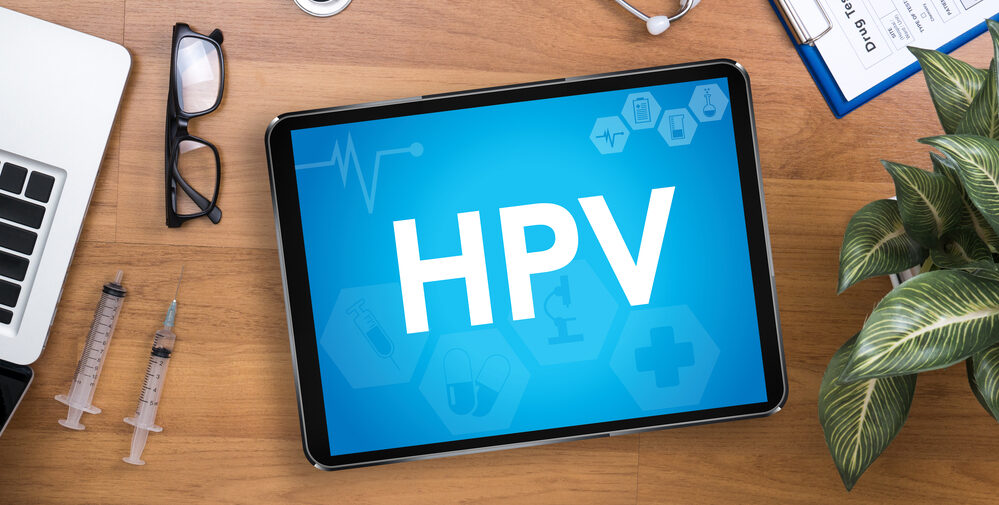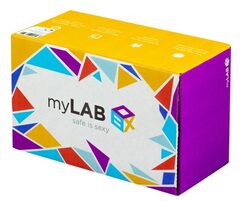HPV Infection

5 Things You Should Know About Human Papillomavirus
By Alexander Cothren
Human Papillomavirus (HPV) is the name for a group of viruses that includes more than a 100 strains or types, of which around 40 can be sexually transmitted. The virus is most commonly transmitted by genital-to-genital contact during vaginal or anal sex but can also be transmitted through oral sex or kissing. Here are 5 Things you should know about Human Papillomavirus.
1. The odds are you will get HPV in your lifetime
HPV is estimated to be the most common sexually transmitted infection in the U.S. According to the American Social Health Association between 75% - 85% of sexually active Americans will contract HPV at some point in their life.
It is believed that around 20 million Americans are currently affected with the virus, with approximately 6 million new HPV cases being discovered each year.
2. You may have HPV and not know it
Many people who contract HPV are unaware of it, as the virus often produces no symptoms. Others may develop genital warts or in rare cases, in their throat.
Warts can appear weeks or months after infection, and come in a range of shapes and sizes. A health professional can diagnose them upon viewing. Even if you do not develop warts, you can still transmit HPV to another person.
Not Your Symptoms Click Here >>
Testing
Note: You can avoid Health Problems if your STI is Detected & Treated.
3. HPV can lead to cancer
Some strains of HPV can cause abnormal changes in your cells, increasing the risk of these cells becoming cancerous. In the most part, these strains of HPV are different from the strains that cause genital warts. The most common type of cancer to derive from HPV is cervical cancer.
Undergoing regular pap tests can ensure the detection of any cell abnormalities caused by HPV, allowing for treatment before invasive cervical cancer develops. In rare cases, HPV can cause cancer to develop in the vulva, vagina, penis, anus, and head and neck. These less common types of cancer require a full biopsy for detection.
4. There is no cure for HPV
There is no available cure or treatment for HPV, although in most cases the body’s immune system will clear it out after an indefinite period of time. The genitals warts deriving from HPV can be cured by medication, but will usually disappear on their own.
5. Using a condom will not protect you against HPV
Condoms cannot offer complete protection against HPV. This is because unprotected areas such as the anus and scrotum can still transmit the virus. However, there are two vaccines which offer protection against some strains of HPV.
Cervarix protects women against some of the strains of HPV that can cause cervical cancer, whilst Gardasil protects men and women against most of the strains that cause genital warts. Both of these vaccines must be administered before the patient is 26 years old.
Is HPV Curable?
No cure for HPV but treatments for health problems it causes. Genital Warts can go away with proper treatment or prescription meds. (CDC)
Conclusion
Ultimately, the best protection against HPV is to limit your number of sexual partners or choose partners who have had no or few prior sexual partners.
Note: To receive Proper Treatment for STIs, testing is required.
About STD Symptoms
Some people can be Symptomless (No Symptoms) of infection for Days, Months & even Years. Making it difficult to know if you have an STD without Getting Tested.
STDs do have Similar Symptoms so it might be difficult to tell which Individual STD you have Contracted. That is why a Panel Test for Multiple STDs is Recommended.
5 Complications of Untreated STIs
- Infertility
- Pregnancy Complications
- Increased Risk of Cancer
- Infection with HIV
See All >>
Related Articles
Could Your Symptoms Signal an STI
Four Simple Ways to Prevent a Cold Sore
See All >>
Products
Featured
Best at-Home STD Test Kit
Test for 8 Common STDs
- Chlamydia | Gonorrhea
- Herpes | Syphilis
- Trichomoniasis
- HIV 1 & HIV 2
- Hepatitis C
No Doctor or Lab Visit
Get Treated if Needed
Order Now >>
 Disclaimer: Articles not intended to Diagnose, Treat, Cure or Prevent Diseases.
Disclaimer: Articles not intended to Diagnose, Treat, Cure or Prevent Diseases.
Infections | Education | Products | Testing


